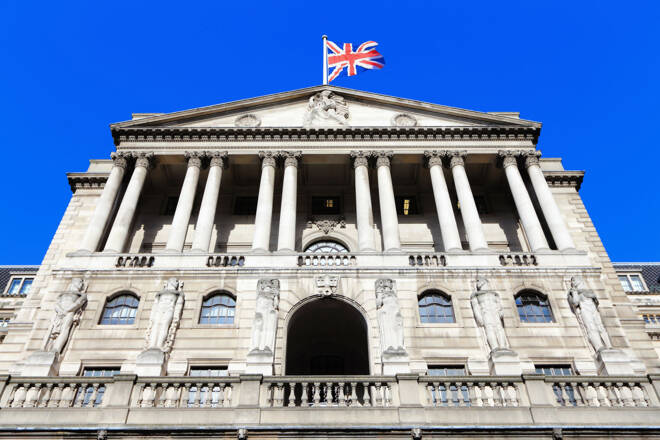Advertisement
Advertisement
Softer UK Inflation Could Give the BoE Some Breathing Space
By:
UK inflation softened by more than expected in January, which should give the BoE relief after Tuesdays wage growth figures.
It was a busy start to the day on the UK economic calendar. UK inflation figures for January will be in the spotlight.
In January, the UK annual inflation rate softened from 10.5% to 10.1% versus a forecasted 10.3%. Month-on-month, consumer prices fell by 0.6% versus a forecasted 0.4% decline. Consumer prices rose by 0.4% in December.
According to the ONS,
- The Consumer Prices Index, including owner-occupier housing costs (CPIH), increased 8.8% year-over-year in January versus 9.2% in December.
- Housing and household services (electricity, gas, and other fuels) and food & non-alcoholic beverages had the largest upward contributions.
- However, the largest downward contribution to the changes in the CPIH and CPI annual rates came from transport (passenger transport and motor fuels in particular).
- Upward trends in restaurants and hotels, with rising prices for alcoholic beverages and tobacco, had the largest partially offsetting contributions.
While consumer prices came in softer than expected, wholesale inflationary pressure remained elevated, suggesting sticky inflation over the near term. In January, the annual wholesale inflation rate softened from 14.6% to 13.5% versus a forecasted 13.3%.
Following the wage growth figures for December, the January inflation numbers could ease pressure on the BoE to deliver aggressive policy moves at the expense of the UK economy. According to figures on Tuesday, average regular pay growth for the private sector was 7.3% in Q4, the most marked outside the pandemic period.
Last week, Chief Economist Huw Pill pointed out that the Bank must continue to tackle upside inflation risks despite an extended period of weakness in the UK economy. Monetary Policy Committee Member Jonathan Haskel took a more hawkish line, favoring more forceful action. A pickup in wage growth would support Haskel’s more hawkish stance.
With the stats on the heavier side, investors also need to consider Monetary Policy Committee member speeches. However, with no MPC members on the BoE calendar to speak today, investors need to monitor commentary with the media.
GBP/USD Response to the UK Inflation Report
Ahead of the UK CPI Report, the GBP/USD rose to an early high of $1.21819 before sliding to a low of $1.21348. Further market reaction to the US CPI Report from Tuesday and risk aversion weighed on the GBP/USD through the Asian session.
However, in response to the CPI Report, the GBP/USD slid to a session low of $1.20860.
At the time of writing, the GBP/USD was down 0.63% to $1.20958.
Next Up
It is a relatively busy day on the US economic calendar. Following the US CPI Report on Tuesday, manufacturing data, industrial production, and retail sales will draw interest. We expect retail sales to have the most influence, however. Retail sales have fallen for two consecutive months. Another monthly fall could reignite fears of a US recession.
However, a spike in retail sales would further fuel bets of a more aggressive Fed interest rate trajectory to bring inflation to target. Economists forecast retail sales to jump by 1.8% in January, which would reverse a 1.1% fall from December.
Following the US CPI Report and retail sales figures, investors also need to monitor FOMC member commentary. However, with no members on the calendar, investors need to track chatter with the media.
About the Author
Bob Masonauthor
With over 28 years of experience in the financial industry, Bob has worked with various global rating agencies and multinational banks. Currently he is covering currencies, commodities, alternative asset classes and global equities, focusing mostly on European and Asian markets.
Advertisement
